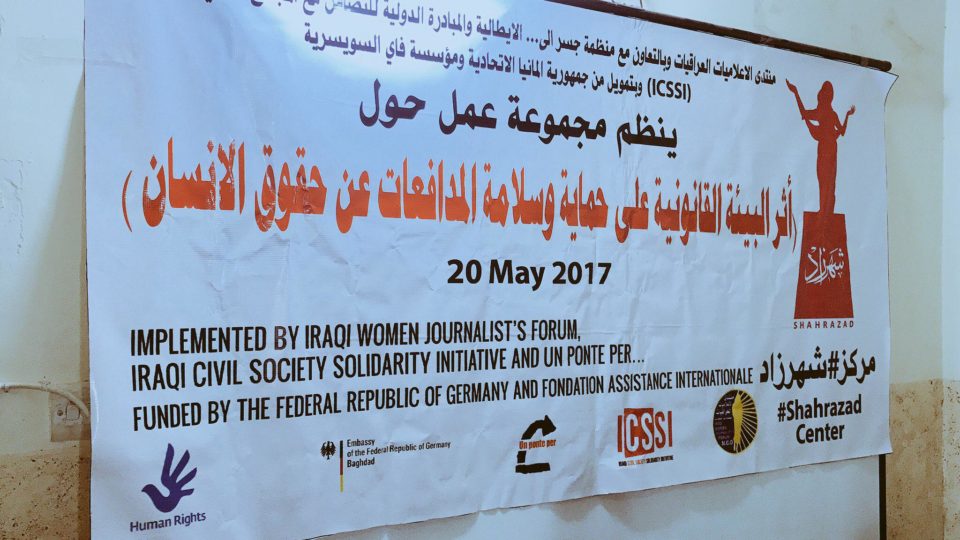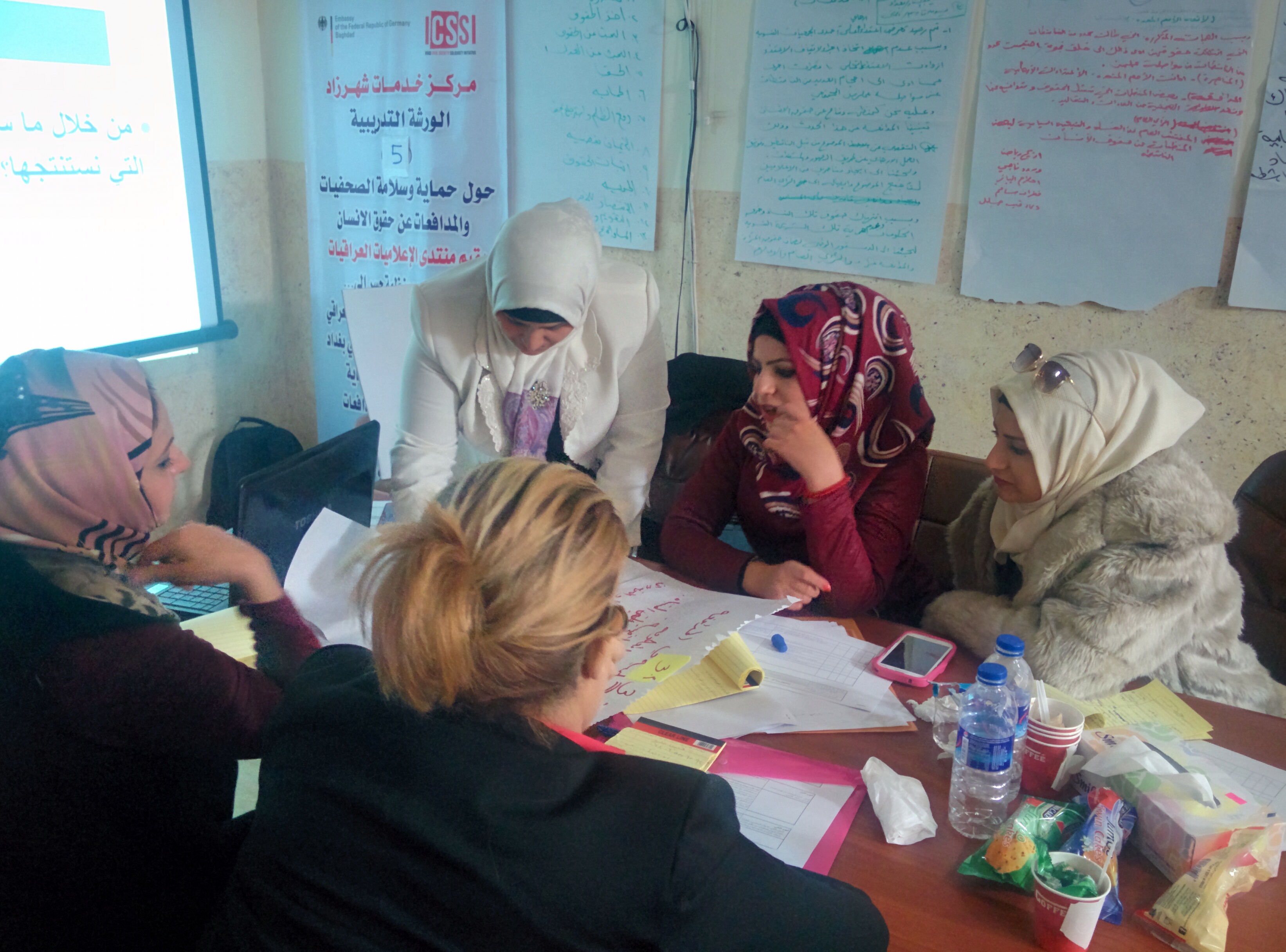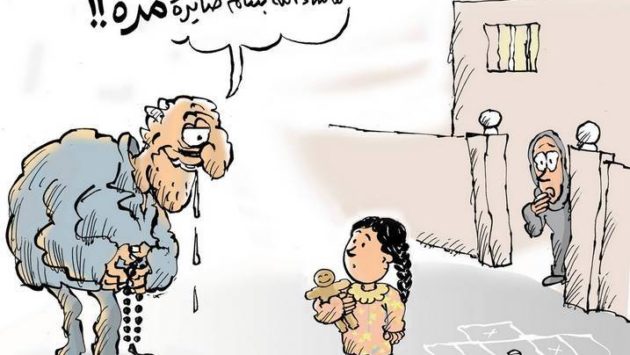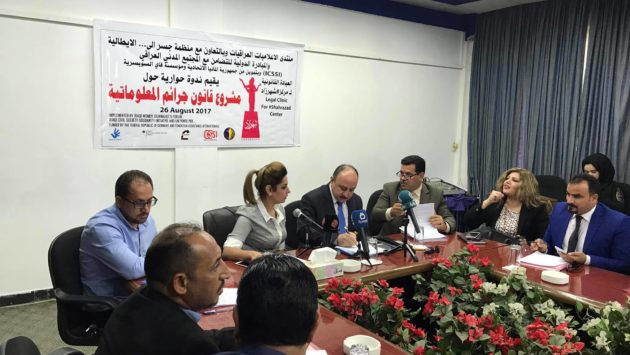Protecting Women Human Rights Defenders: The Impact of the Security and Legal Environment
The protection of women human rights defenders (WHRDs) is one of the most urgent issues now facing activists and civil society organizations. More specifically, there is an increasing awareness of the need to provide security and legal frameworks capable of creating a safe working environment, one commensurate with the sensitivity of the tasks these defenders perform. The current situation in Iraq makes it difficult to ensure the necessary protection, especially to women: they simply do not receive sufficient legal or social support. In attempt to remedy this critical situation, the Iraqi Women’s Journalist Forum organized two working groups within the Shahrazad project on 19 and 20 May, dedicated to developing more effective ways to protect women human rights defenders. The first group focused on the impact of the security environment, and the second was devoted to a discussion of that of the legal environment.
During the first focus group, researcher in security affairs, Ali Abdul Aziz al-Yasiri, reviewed his paper on the security environment and its effects on the protection and safety of women human rights defenders. There are serious challenges facing women (both activists and non-activists) which arise from the nature of the security system itself. This system, Al Yasiri explains, is defined and run by Iraqi institutions (for instance, the ministry of defense and the ministry of the interior). This formal system is then strengthened and realized by individuals who work within the frameworks set by the institutions, which in turn align with traditional established social norms — and these do not always provide sufficient support for women.
Al-Yasiri added that many organizations have made great efforts to ensure that there would be legislation in place to protect WHRDs, but they have yet to develop a security strategy which addresses the actual needs of WHRDs on the ground. In addition, he highlighted the fact that current security institutions lack adequate representation of women.
The second focus group discussed the legal impact on women human rights defenders. Dr. Musadaq Adil Talib, a law professor at the University of Baghdad, reviewed his paper on the legal environment as it relates to the protection and safety of WHRDs. In it, he made three important points: first, he analyzed the Declaration on the Protection of Human Rights Defenders from a legal standpoint; second he explored whether the Iraqi constitution could provide adequate legal protection for WHRDs; and third, he looked at the legislative process as it is applied to the protection of the rights of women human rights defenders.
He concluded his paper by stressing the need to issue a law in parliament — the law of human rights defenders — which would act as a model for the Arab world, together with a law protecting the rights of journalists and doctors. This law, he said, should ensure that the rights and freedoms of WHRDs are protected, and should provide a roadmap for procedures to be followed when violations occur.
The workshops concluded with an aim to issue a legislative policy paper guaranteeing the protection of WHRDs, to be published later this year within a broader study including other relevant topics. It would be a procedural paper for policy makers and international organizations. This is one of the main activities of Shahrazad projects that will take on this year.






